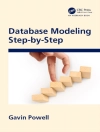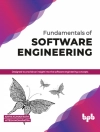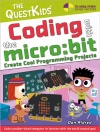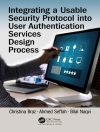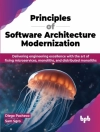IMPROVE stands for ‘Information Technology Support for Collaborative and Distributed Design Processes in Chemical Engineering’ and is a large joint project of research institutions at RWTH Aachen University. This volume summarizes the results after 9 years of cooperative research work.
The focus of IMRPOVE is on understanding, formalizing, evaluating, and, consequently, improving design processes in chemical engineering. In particular, IMPROVE focuses on conceptual design and basic engineering, where the fundamental decisions concerning the design or redesign of a chemical plant are undertaken. Design processes are analyzed and evaluated in collaboration with industrial partners.
Cuprins
Goals, Approach, Functionality of Resulting Tools, and Project Structure.- A Model-Driven Approach for A-posteriori Tool Integration.- A Scenario Demonstrating Design Support in Chemical Engineering.- The Interdisciplinary IMPROVE Project.- Application Domain Modeling.- An Introduction to Application Domain Modeling.- Product Data Models.- Document Models.- Work Process Models.- Decision Models.- Integrated Application Domain Models for Chemical Engineering.- New Tool Functionality and Underlying Concepts.- Using Developers’ Experience in Cooperative Design Processes.- Incremental and Interactive Integrator Tools for Design Product Consistency.- Multimedia and VR Support for Direct Communication of Designers.- An Adaptive and Reactive Management System for Project Coordination.- Platform Functionality.- Goal-Oriented Information Flow Management in Development Processes.- Service Management for Development Tools.- Integration Aspects.- Scenario-Based Analysis of Industrial Work Processes.- Integrative Simulation of Work Processes.- An Integrated Environment for Heterogeneous Process Modeling and Simulation.- Design Support of Reaction and Compounding Extruders.- Synergy by Integrating New Functionality.- Usability Engineering.- Software Integration and Framework Development.- Steps towards a Formal Process/Product Model.- From Application Domain Models to Tools: The Sketch of a Layered Process/Product Model.- Work Processes and Process-Centered Models and Tools.- Model Dependencies, Fine-Grained Relations, and Integrator Tools.- Administration Models and Management Tools.- Process/Product Model: Status and Open Problems.- Transfer to Practice.- Industrial Cooperation Resulting in Transfer.- Ontology-Based Integration and Management of Distributed Design Data.- Computer-Assisted Work Process Modeling in Chemical Engineering.- Simulation-Supported Workflow Optimization in Process Engineering.- Management and Reuse of Experience Knowledge in Extrusion Processes.- Tools for Consistency Management between Design Products.- Dynamic Process Management Based upon Existing Systems.- Service-Oriented Architectures and Application Integration.- Evaluation.- Review from a Design Process Perspective.- Review from a Tools’ Perspective.- Review from an Industrial Perspective.- Review from Academic Success Perspective.


